Posted on October 23, 2019
Post categories: Architecture Students
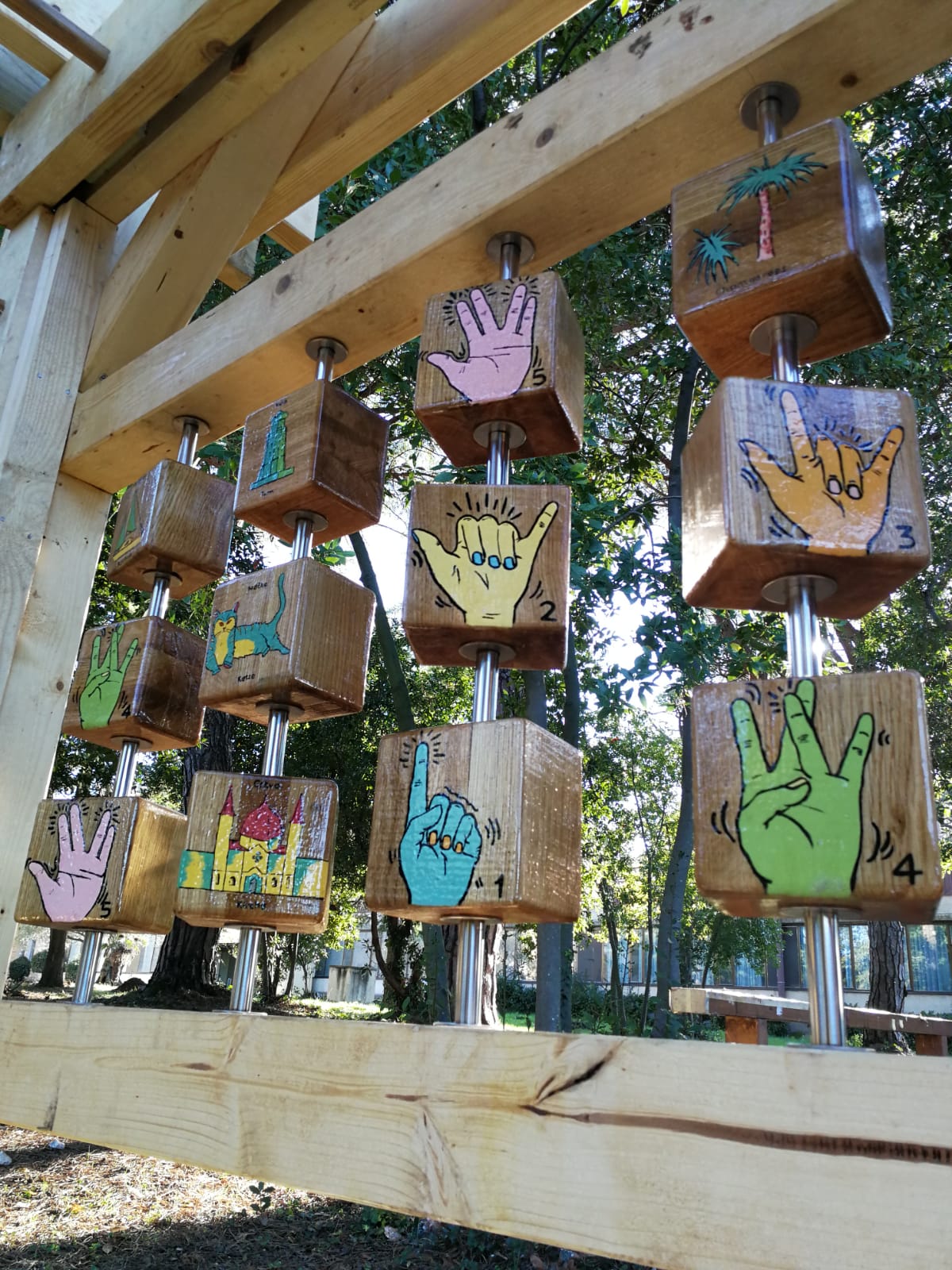
The UW Landscape Architecture Croatia Design/Build program gives students the unique opportunity to make a lasting, physical impact in their host community. Professor Daniel Winterbottom, an expert in the creation of healing and therapeutic gardens, leads the program.

With Professor Winterbottom as their guide, students explore the role of restorative landscapes in the built environment through hands-on learning. They study the history of healthcare in Croatia while also exploring the unique culture, food, and architecture heritage of the region. Finally, the students gain practical experience, working together to solve a real-world design/build problem. Last year, students were tasked with creating a new outdoor physical therapy rehabilitation space at the “Prim. Dr. Martin Horvat” Orthopedic and Rehabilitation Hospital.
Located just outside the city of Rovinj, on the western coast of the Istrian peninsula, the hospital is among the oldest orthopedic-rehabilitation institutes. It specializes in offering modern hydrotherapy treatments to patients coming from throughout Europe. The close proximity to the temperate waters of the Adriatic Sea allows the hospital to offer both indoor and outdoor hydrotherapy facilities during much of the year. For the students, this means having the opportunity to design a functional, therapeutic outdoor space to serve both patients and staff. The build portion of the program further allows students to become adept with key landscape construction techniques, materials, and project management approaches – skills that often aren’t practically addressed in a traditional classroom setting.
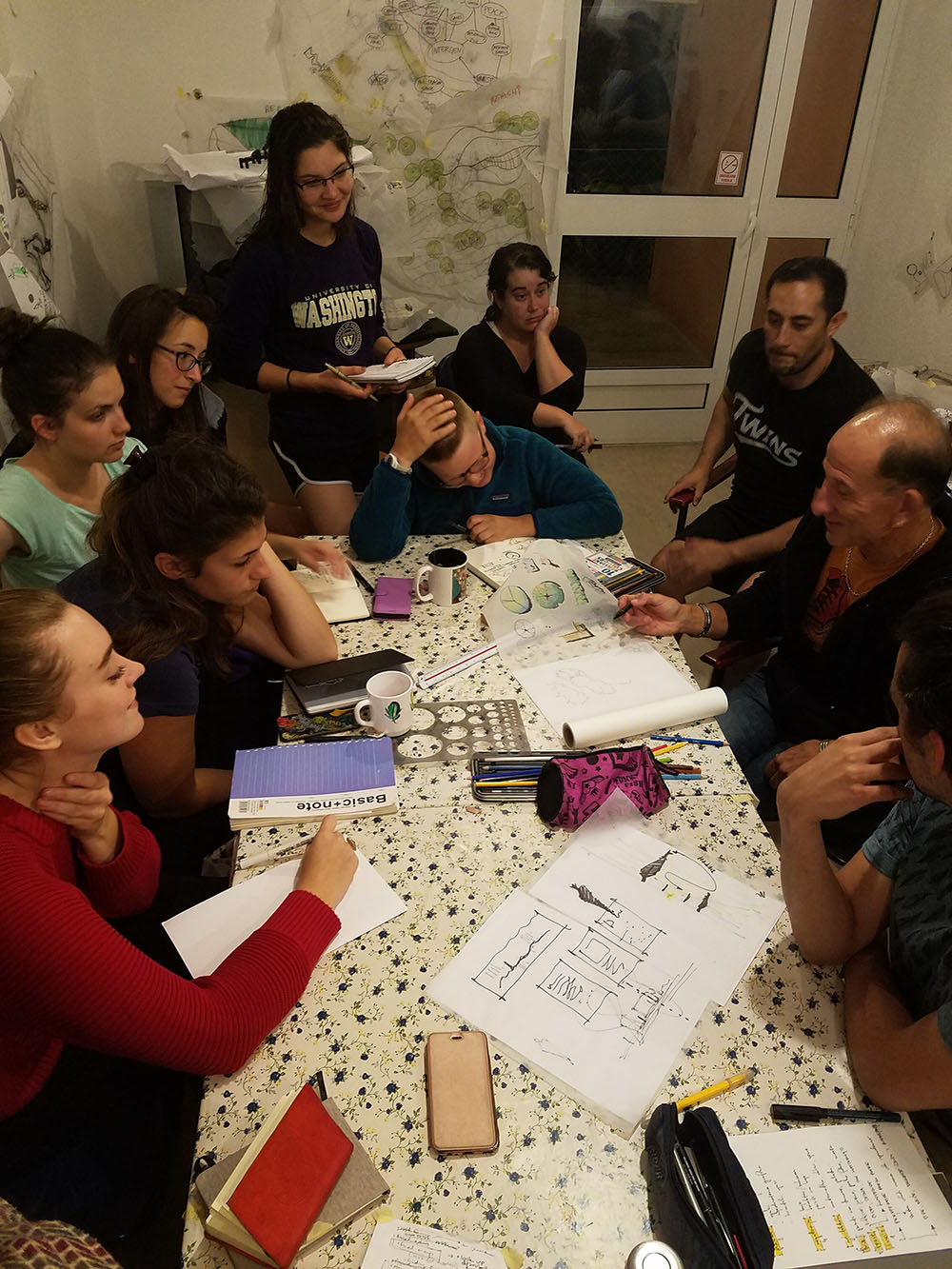
For Elizabeth Lange, a Master of Landscape Architecture Student, the most memorable part of the experience was the opportunity to build strong connections and foster teamwork with her fellow American and Croatian classmates.
“Every day it was a lot of work and long days, but it was fun to be with the people in the program and learn new things,” she shared. “I became very close with my classmates because of this program.”
Elizabeth also felt that the unique opportunity to participate in a design/build program was particularly useful for rounding out her educational experience, especially as she prepares to enter professional practice in the near future.
“A design build program forces you to think about your design and the practicality of it,” she explained. “In design school, we don’t normally construct what we design, so the sky is the limit in some sense, but in a design/build that isn’t the case. You can think of grand ideas but then you also have to factor in the budget and feasibility of it in order for it to work in the real world. I think that is an important thing to experience in school going forward.”
Perhaps one of the most important aspects of the study abroad experience is the way in which it allows students to frame their own life and experiences in the context of a broader perspective.
For Elizabeth, her time in Croatia gave her valuable personal insights and allowed her to build stronger relationships with others – both key hallmarks of a successful study abroad experience.
“I learned a lot about myself and my abilities during this program through my relationship with my friends and through the relationship of design,” Elizabeth shared.
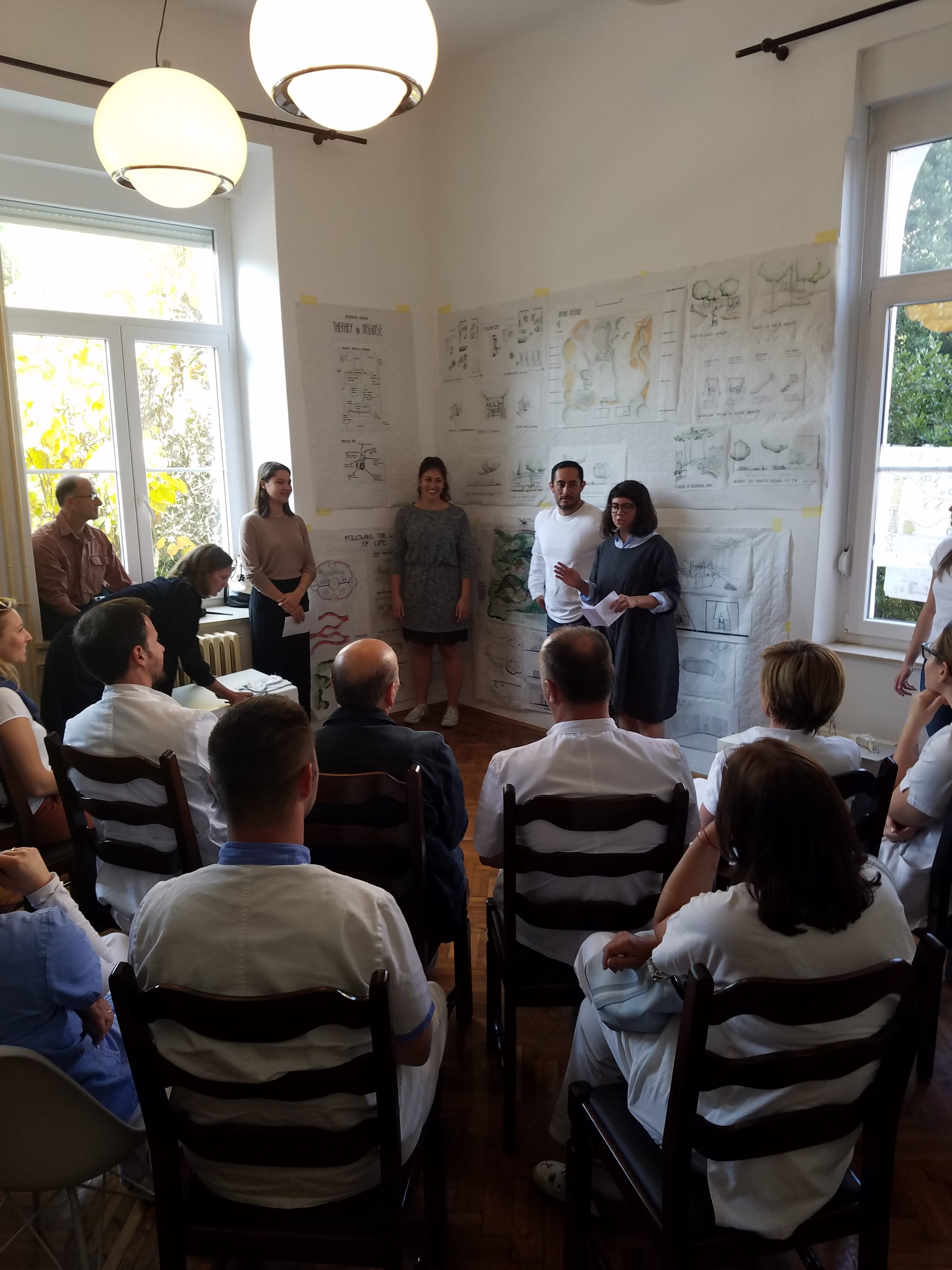
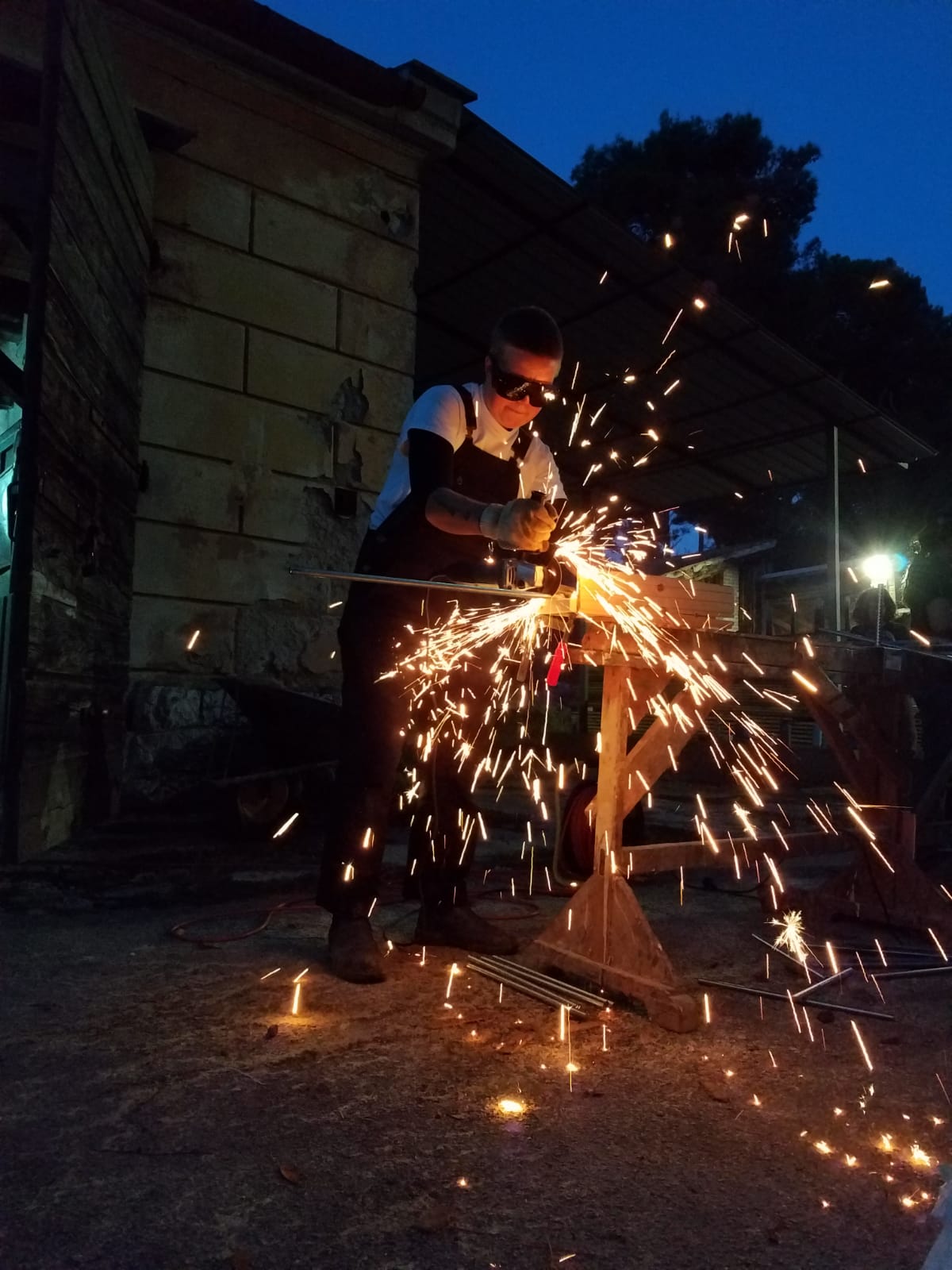
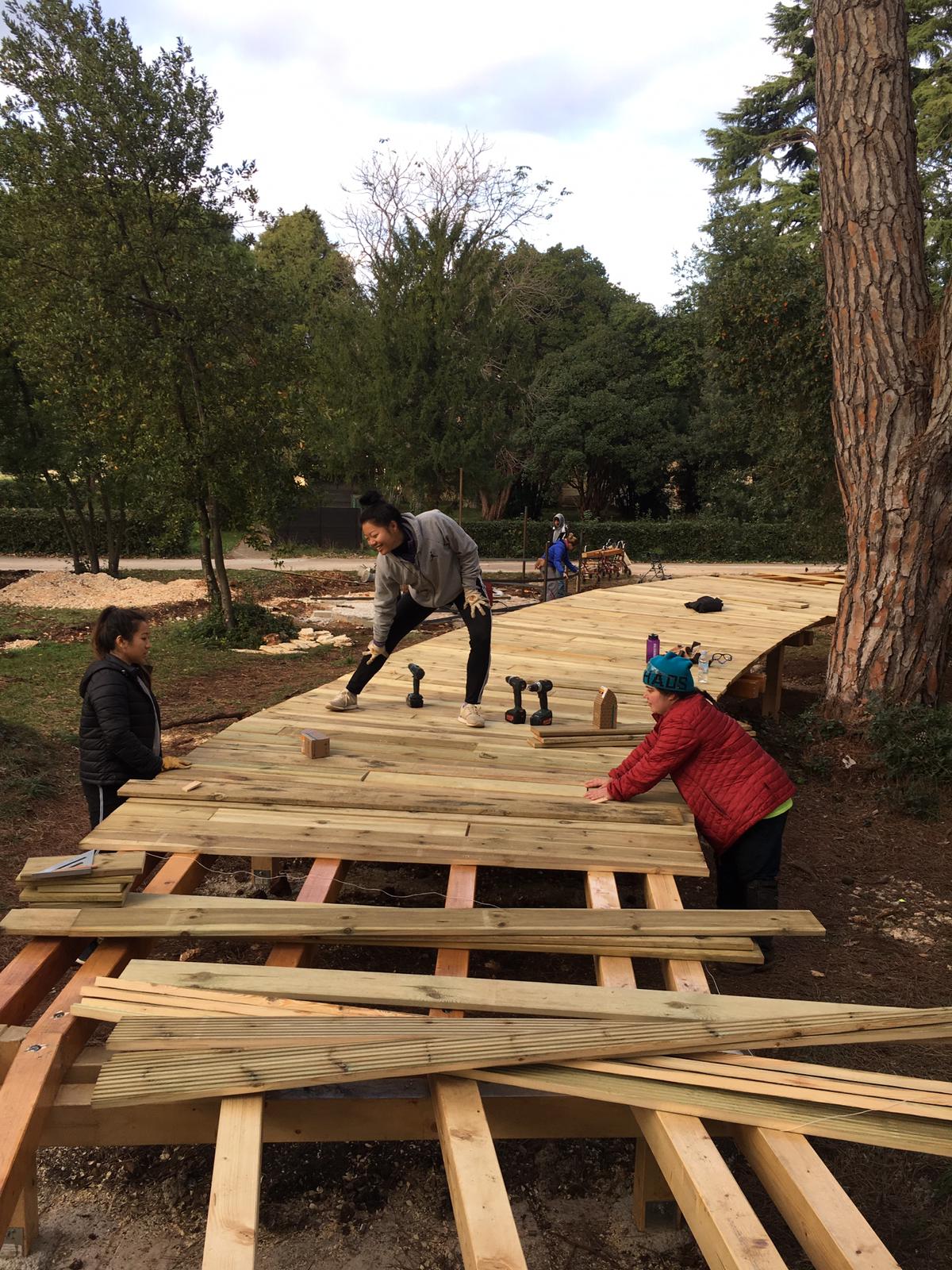
Photo credits: Rhiannon Neuville and the 2018 Croatia Design Build class.